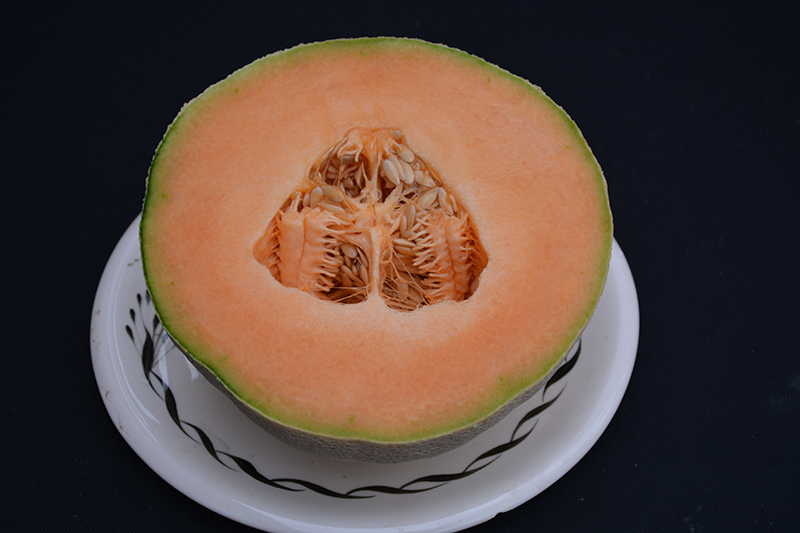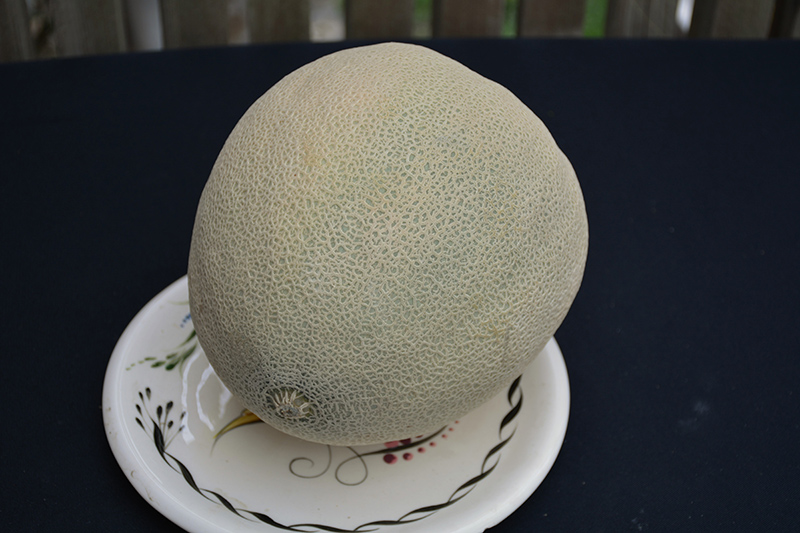Ambrosia Cantaloupe
Cucumis melo var. reticulatus 'Ambrosia'
Height: 18 inches
Spacing: 3 feet
Sunlight:
![]()
Hardiness Zone: (annual)
Other Names: Muskmelon, Rockmelon
Description:
A lovely variety that produces a bumper crop of muskmelons; 6" round fruit with netted, tan rind gives way to gorgeous, thick and firm peach colored flesh; fragrant, extra sweet and juicy, great for snacking or adding to salads; best if grown on trellises
Edible Qualities
Ambrosia Cantaloupe is an annual vegetable plant that is commonly grown for its edible qualities. It produces tan round melons (which are technically 'berries') with peach flesh which are typically harvested when mature. The melons have an exceptionally sweet taste with a firm texture and a sweet fragrance.
The melons are most often used in the following ways:
- Fresh Eating
- Eating When Cooked/Prepared
- Juice-Making
- Freezing
Planting & Growing
Ambrosia Cantaloupe will grow to be about 18 inches tall at maturity, with a spread of 6 feet. When planted in rows, individual plants should be spaced approximately 3 feet apart. Because of its vigorous growth habit, it may require staking or supplemental support. This vegetable plant is an annual, which means that it will grow for one season in your garden and then die after producing a crop.
This plant is typically grown in a designated vegetable garden. It should only be grown in full sunlight. It does best in average to evenly moist conditions, but will not tolerate standing water. It is not particular as to soil type or pH. It is somewhat tolerant of urban pollution. Consider applying a thick mulch around the root zone over the growing season to conserve soil moisture. This is a selected variety of a species not originally from North America.
A NetPS Plant Finder tool



